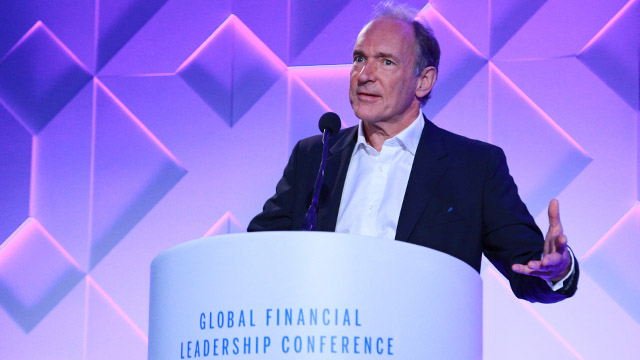The former U.S. Chief Technology Officer, Aneesh Chopra, lead a panel discussion at CME Group’s Global Financial Leadership Conference on the future of financial technology with three highly qualified and opinionated guests. Sir Tim Berners-Lee, who was awarded with the 2016 CME Group Melamed-Arditti Innovation Award, is best known as the inventor of the World Wide Web. James Staten is the Chief Strategist at Microsoft’s Cloud + Enterprise Division; and, Brian Forde is the co-founder of Digital Currency Initiative at the MIT Media Lab.
The three panelists had different approaches to how fintech can and will best serve its customers in the future. A majority of the conversation hung around data stewardship and datastore ownership. Sir Tim Berners-Lee argued the main point in fintech data should not be commercializing end users’ data, but instead to offer the end user control of their data and allow them to decide when it can be accessed and by whom. While some will argue the customer is not incentivized to offer their own data, a good discussion revolved around making the case to the end user about how powerful their data is combined.
James Staten highlighted how a world where financial, health tracking, GPS, and other datasets are enriched by each other to create more meaningful data for fintech companies and others. One such way would be “explainable artificial intelligence,” a project at DARPA, which provides the consumer with rights on understanding why a decision was made (example: Why they were rejected for an online loan.).
The panel discussion ended with the same question asked of each panelist: How to incorporate fintech into your own company strategy? Staten recommended companies lean in where their customers are expecting you to operate, saying you cannot wait for the regulations to be written as they always lag. Brian Forde spoke hypothetically of a world in which open web protocols for fintech interoperability would be lead by venture capitalists who invest in software and technology developers. Sir Tim Berners-Lee hammered home the concept of trusted data stewards offering that “if you respect or agree on who owns the data then you’ll create a better process and regulation.”
